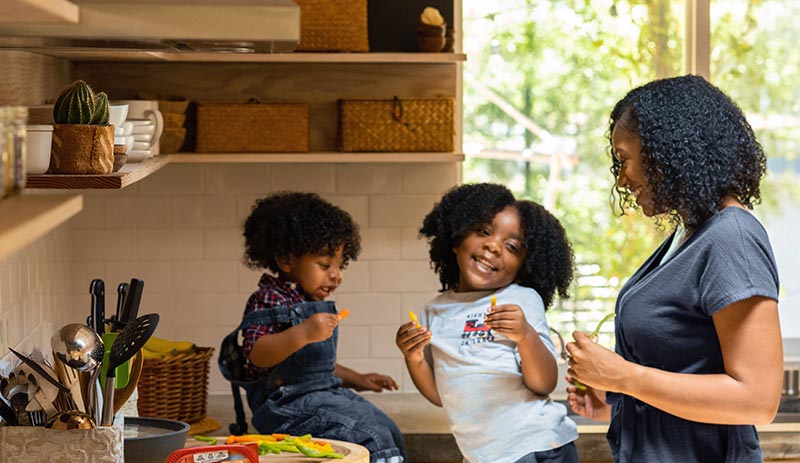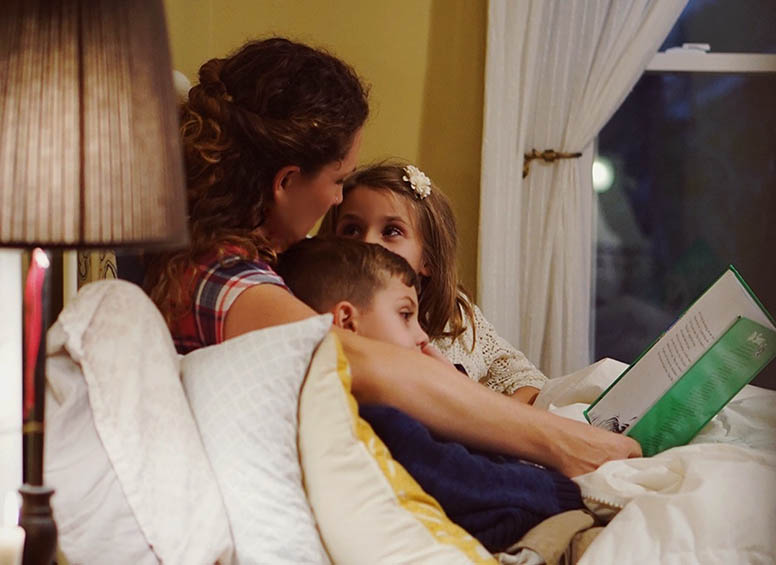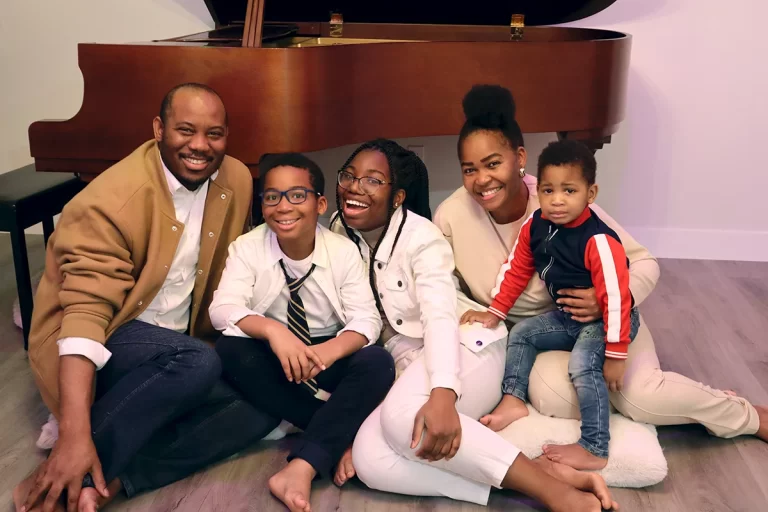
 Time is an interesting thing … Adults never seem to have enough, while kids have more than they know what to do with. So when it comes to making the most of the time we have with our kids, learning to handle it well is essential.
Time is an interesting thing … Adults never seem to have enough, while kids have more than they know what to do with. So when it comes to making the most of the time we have with our kids, learning to handle it well is essential.
After receiving the 10 Commandments from God, Moses mentions 4 specific times when families are to recall God’s law:
The commandments I give you today must be in your hearts. Make sure your children learn them. Talk about them when you are at home. Talk about them when you walk along the road. Speak about them when you go to bed. And speak about them when you get up. (Deuteronomy 6:6-7)
Sometimes as parents, our goal is just to survive the day! But I know we’d all agree that as Christ followers, we need to make the most of each moment with our kids, and to make time to talk about the things that are important.
Sarah Anderson, author and contributor for ParentCue.org, breaks down 4 specific times that happen naturally during the day – morning time, drive time, meal time, and bed time – along with some very specific goals for each. Below are some of the highlights from these articles. Be sure to check out each specific link for more information and tips! – Crystal Sylvester, Children’s Ministry Pastor at FAC
Morning Time
Your Role: Coach
Your Communication: Encouraging Words
Your Goal: Instill purpose

Part of what makes mornings hard is we try to get through them more than we try to use them. If we had a goal – like instilling purpose – and a mode of accomplishing it – like encouraging words – we could change the look and feel of our day. The point is to start the day that way because it gives kids, even in an indirect way, a really crucial understanding. Every day is fresh. Every day is new. Every day is the chance to do this all again, and to maybe even do better than we did last time.
- Communicate ideals for the day, in conduct and behaviour, with hope – not demands. Let your kids know you want them to win for the day.
- Learn your kid’s schedules and what they have coming up. Tests? Try-outs? The dreaded mile-run in P.E.? Show them you care, by being in the know about what’s going on in their life.
- Tell your kids how proud you are of them, how much you believe in them, and the potential you see in them. No matter how old they are, they will never outgrow the need for encouraging words.
- Reserve at least 5 minutes for yourself, before your kids get up. It’s hard to instill purpose in others if you feel depleted.
- Set the tone for your home. Don’t let your kids’ emotions steer the ship. Determine how you want the mornings to feel, then do everything you can to make them feel that way.
Learn more about Making the Most of Morning Time.
Drive Time
Your Role: Friend
Your Communication: Informal dialogue
Your Goal: Interpret life
Drive time is the most laid back and non-threatening of the 4 times. You can avoid eye contact – which eliminates a lot of pressure – and use distractions to your advantage, allowing you to interact with your kids in a really casual way. Some of the best conversations can happen in the car. The goal here is to enter their world and talk about the stuff they love – the songs on the radio, the movies they want to see, the things that pique their interest. In that way it puts your kids in the driver’s seat, in the figurative sense, because they set the agenda for conversation.
To make the most of this time, learn to ask good questions:
- What movies do you want to see?
- What’s your favourite song right now?
- What was the best part of your day? The worst?
- What are you most looking forward to about where we are headed? What are you dreading?
- Did anything funny happen today?
- Did anything surprising happen?
As important as your initial question is to get them talking, your follow up one is even more important because it shows you’re listening. Remember, this is a time to connect, not work through a checklist.
For preschoolers, keep it simple. Ask them about their favourite colour, truck, animal (you get the idea) on a regular basis because they are constantly changing. Make a game out of looking for cars the colour they love, spying fire trucks, and other fun sightings.
For some of us, a win is just turning off the DVD player, and turning town the sports radio. Even if magic doesn’t happen in drive time, at least give it the space for it happen. And you’ll likely find that some of your best conversations with your kids, and most revealing, will happen in the car.
Learn more about Making the Most of Drive Time.
Meal Time
Your Role: Teacher
Your Communication: Formal discussion
Your Goal: Establish values

Meal time can often feel chaotic, but what if it was within our power to make it less that way? To start, get around the table. Turn off the TV. Leave your phones on the counter. Seriously. And start talking. Talk to your toddlers and your preschoolers, talk to your spouse, talk to your teenagers – even if all you get are grunts and one-word answers.
Use your time at the table to celebrate your family values. For example, let’s say you decided honesty was something your family was going to hold in high esteem. Instead of just telling your kids how important it is for them to be honest, try sharing some stories of your own. Maybe you learned something the hard way about being honest as a kid. Maybe you were challenged just this week in a situation where it would have been easier to be dishonest, but you took the high road, and can share with your kids the benefits and the challenges. Telling stories on yourself gives your kids insight into who you are, not just as a parent, but as a person, and gives them clues into why your family values what it does.
Younger kids love the chance to hear stories portraying their parents as kids once themselves. But teenagers need the chance to hear stories of their parents that make them more human and relatable – instead of just a distant authority figure.
But it does more than that, too. Elevating values through your own experience allows your kids to see that the things you want so much for your kids to model in their lives are the things you are working hard to model in your own.
Ultimately, meal time is a win when it’s used to centre your family. It can help you regroup, re-gather, and be reminded of your connection with each other and the things that make your family unique. As chaotic as things can sometimes feel, as maddening as your family can sometimes be, you are in it together. So make the time you have together be time that will strengthen your family, and allow you to become closer and more resilient than ever before.
Learn more about Making the Most of Meal Time.
Bed Time
Your Role: Counselor
Your Communication: Intimate conversation
Your Goal: Build intimacy
There are days – a lot of days – when bed time is a finish line that can’t be reached fast enough. When you’re sprinting through the bath and the stories and the praying and stuffed animal retrieval and the song-singing and the tucking in just so you can close the door and wrap up the Netflix series you’ve been binging on.
The reason bed time is so hard is because it happens at bed time. You’re spent by the time it arrives. Everyone is on their last leg. No one is operating at full capacity, which makes this time of the day hard to maximize the meaning of, and hard to get the most out of.
That being said, not every night will be magical. But when we become intentional and make an effort with what we have, we may be surprised at what we get.
Bed time can be the time where everyone gets closure on the day, and when you help offer it as the adult, you communicate to your kids that you are safe and trustworthy. It’s when I get to assure them of the timeless truths that mean the most to them right now:
- “God is with you.”
- “You’re braver than you think you are.”
It’s also a great time to draw attention to the things we see God doing in our kids as individuals.
- “I saw the way you helped your brother today, and I am so proud of you.”
- “I loved how you ate all of your broccoli without complaining, even though you don’t love it.”
- “I noticed how you put your clothes away and I didn’t even have to ask! Thank you.”
Let your kids know, no matter how old they are, you notice them. You see potential in them. And you’re for them.
Not every day is a win. Not every time with our kids is purposeful. But when we look for the chance to impart meaning and purpose, we may find opportunities we never knew we had, and the chance to relate to our kids in ways we never imagined possible.
Learn more about Making the Most of Bed Time.
Note: This blog post features excerpts from articles written by Sarah Anderson for Parentcue.org.
Additional Resources
- Parentcue.org partners with the curriculum used in DiscoveryLand at FAC. You’ll find a ton of great parenting articles, family activities, and books that will help with your parenting journey.
- Download the Parent Cue App and you’ll get prompts and tips to have meaningful conversations with your kids, which correlate with the weekly DiscoveryLand curriculum.
- Listen to the Parent Cue Podcast, which features parenting experts and is designed to help parents do family better. Author Sarah Anderson unpacks the Morning Time, Drive Time, Meal Time, and Bed Time routines in the episode “Making the Most of your Family Rhythms”.
You may also be interested in …
- DiscoveryLand at FAC
- Talking with Your Child About Jesus blog post, published April 19. 2019
- Being Faithful Grandparents blog post, published August 23, 2019



